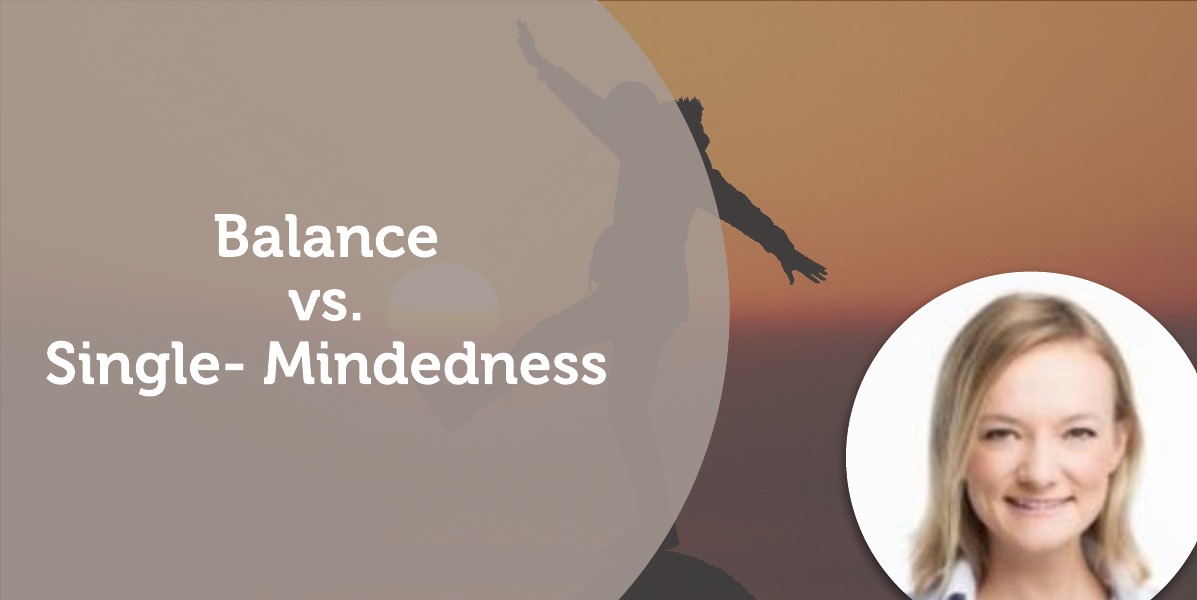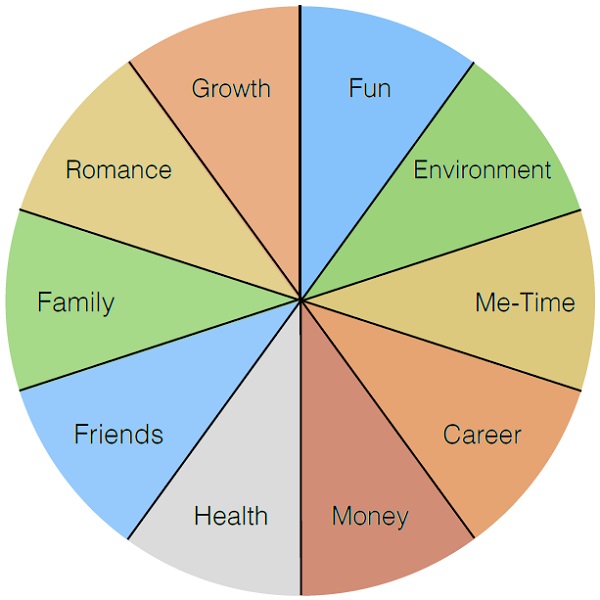
A Coaching Power Tool Created by Meike Sperber
(Life and Career Coach for Expat Partners, HONG KONG)
Balance is not something you find. Its something you create.
More and more people become aware of the importance of balance in life. Yoga studios keep on popping up globally, healthy smoothies are a huge success for every coffee shop, mindfulness is no longer a hidden secret only for spiritual caffeine people and companies discover more and more the need of balanced employees. Mark Mahoney, president and co-founder of the software company Jackrabbit, strikes the right balance between “business time, family time, and me time” and “being physically and mentally present” when working and playing. To accomplish this, he disables his work email when on vacation, doesn’t look at his computer before going to bed and schedules regular workouts.
However, Single-mindedness can be an important skill. There are times where we need to be able to focus and maybe even put other parts of our life in the background. This can be close to an important exam when someone just has a newborn baby or often when people are newly in love. Suddenly nothing else seems to be important anymore. However that often comes with downsides, may it be on the health or long term happiness, if the single-mindedness stays too long. It often substitutes for “empty” parts in someone’s life. The person who focuses mainly on the career might block out missing private happiness. Also, a lot of motivation and satisfaction can come with focus and the following success. A person who focuses mainly on running and exercise to reach the goal of a successful marathon might be very successful with this strategy. However risking to loose friends, due to missing time to spend socially. Obviously it’s not always that black and white and a passion for something is not to mistake with a potential obsession. But how do you find out if we are talking about obsession or a passion which fits nicely in an overall balanced lifestyle? Lets first have a look for the different components of balance:
The following components build the base for balance in my view: Body (Nutrition, Exercise, Health): The absence of sickness is not equally with health, the goal is to achieve the maximum of everyone’s individual potential through their everyday lifestyle choices
Mind (Growth, Me-Time, Spirituality): Talking about the mind and focus on one-self is very personal. For some people, it means being connected with something higher through religion or through practices like Yoga or mindfulness. Independent of everyone’s choices, connecting with one-self and finding a purpose of life is lying in every human-being in whatever way.
People (Family, Romance, Friends): Is there an openness to meet new people and is there a safety net we can rely on and at the same time give back to others?
External (Environment, Career, Money): How much are we in control to change our external environment and chances. A career should be defined as a role that gives fulfilment, not necessarily measured by the job title and power.
Not everything always has to be balanced and it’s normal to set different priorities in life, money, me-time etc. Often people also change their priorities after life-changing events or just with age. A priority towards career and money changes often later towards health and family.
Self Application:
You can use the ideas for yourself or incorporate into the coaching practice with clients and support them along the change process towards more balance:
-
- Work schedule: Challenge yourself for a month and question every task /appointment/meeting. What is really needed and what is stealing your time
- Relationships: Who is really important to you / Who energises you. Surprisingly often I see my clients struggling with “private commitments” they don’t really want. Focus on the people in your life who are truly important to you
- Social media: Consider where and how you spend your time. How much time do you want to “waste” in social media? In order to gain the needed balance, I personally enjoy mobile free evenings or sometimes even short trips without the internet for a very few days. Great starting point to practise mindfulness and being connected with the people and environment around you
My favourite summary of how balance can look like:
Balance is the key. In everything you do. Dance all night long and practice yoga the next day. Drink wine but don’t forget your green juice. Eat chocolate when your heart wants it and kale salad when your body needs it. Wear high heels on Saturday and walk barefoot on Sunday. Live high and low. Move and stay still. Embrace all sides of who you are. Be brave, bold, spontaneous and loud and let that complement your abilities to find silence, patience, modesty and peace. Aim for Balance.

